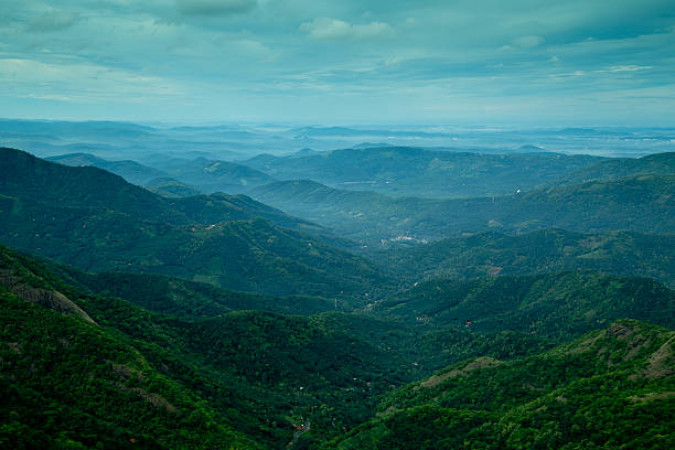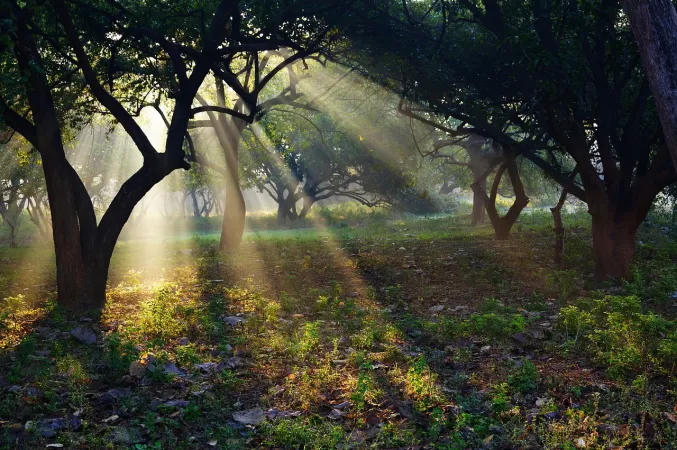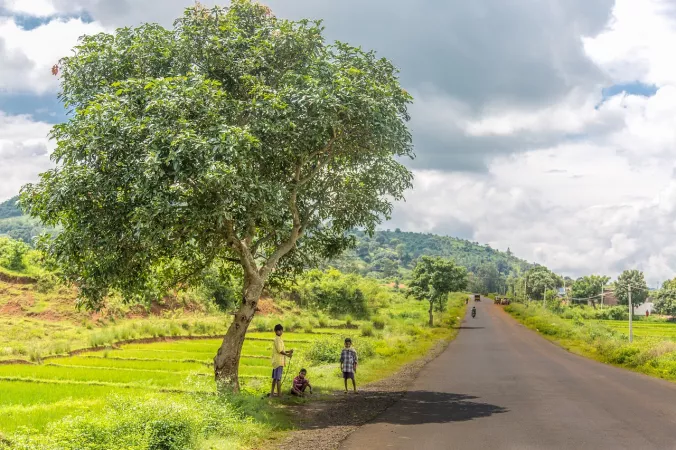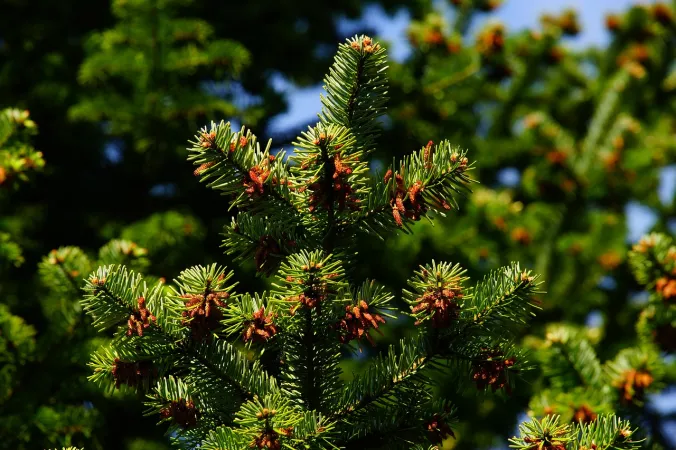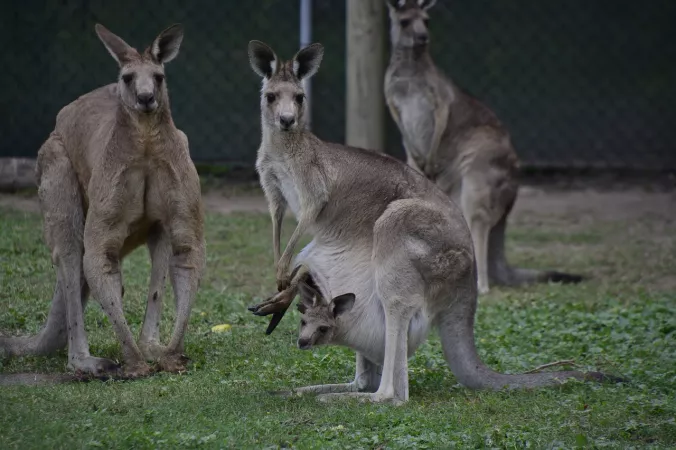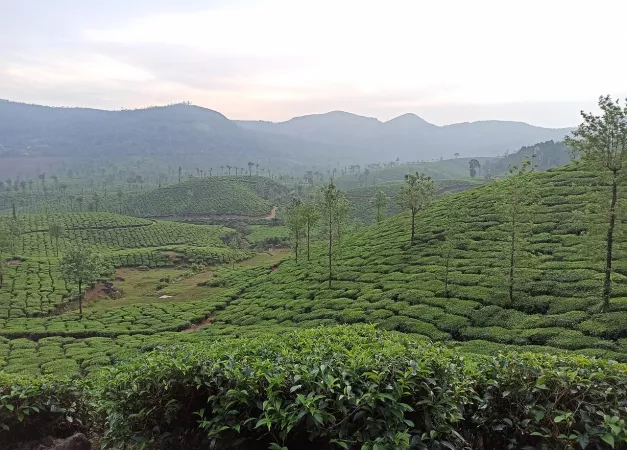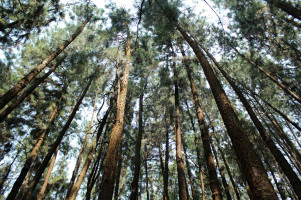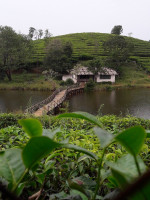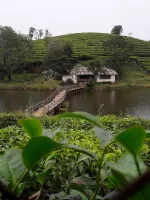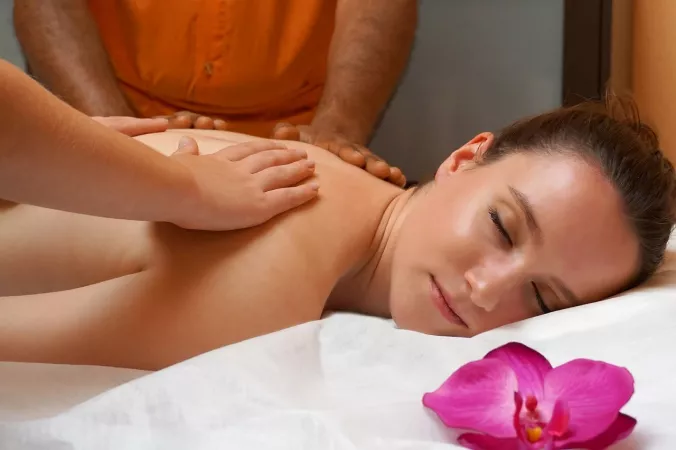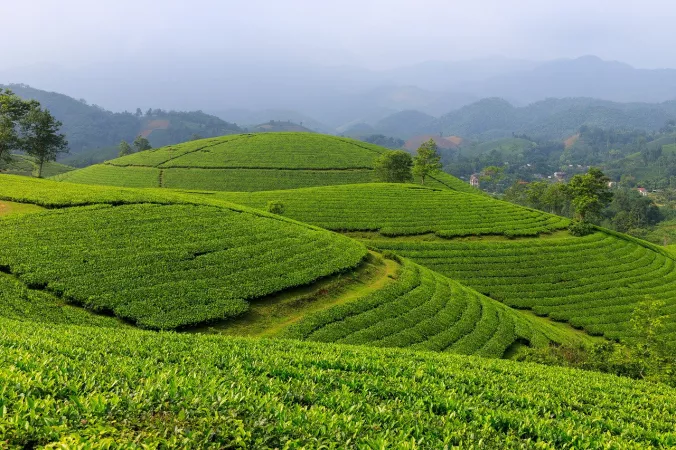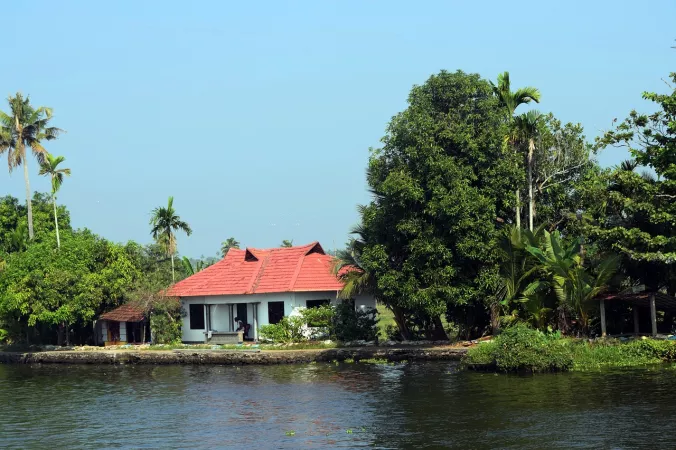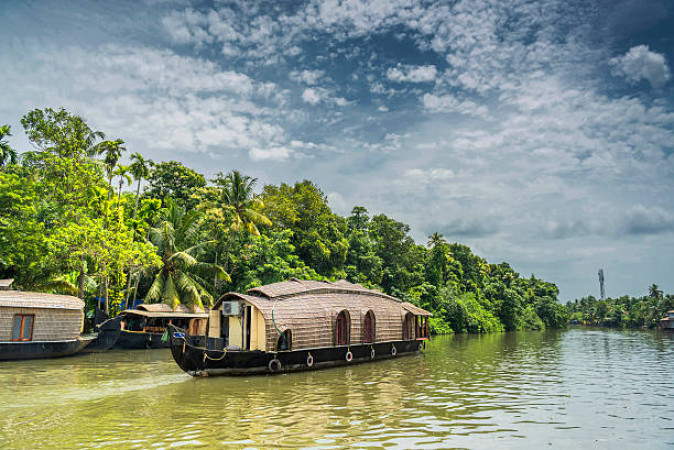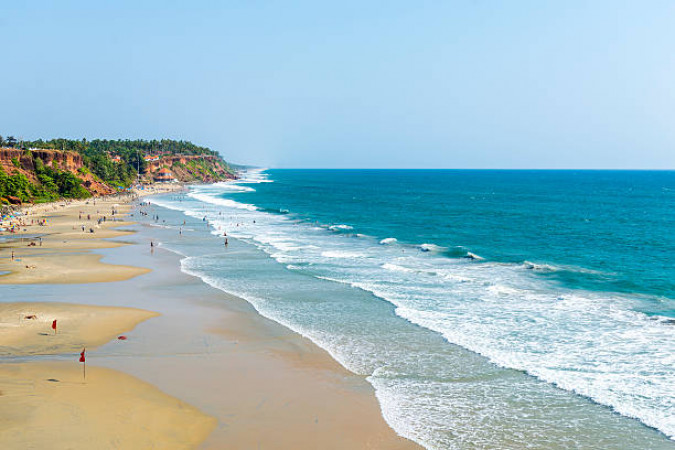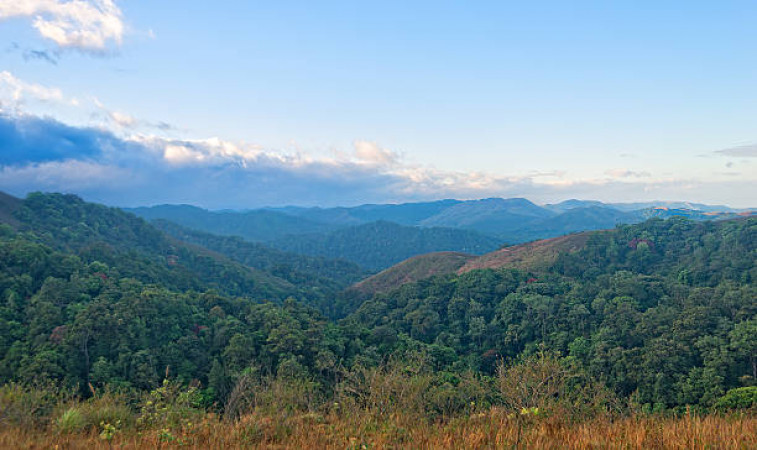Vagamon Travel Guide
Vagamon is a picturesque hill station located in the Idukki district of Kerala, India. Known for its lush green landscapes, rolling hills, and pleasant weather, Vagamon is a popular destination for nature lovers and adventure enthusiasts. The town has a rich history dating back to the British colonial era and is nestled at an altitude of 1,100 meters above sea level. Vagamon is famous for its tea plantations, meadows, and pine forests, offering a serene retreat away from the hustle and bustle of city life.Top Attractions in Vagamon
- Vagamon Pine Forest
- Vagamon Meadows
- Thangal Para
- Murugan Mala
- Vagamon Lake
Vagamon is Famous for
Its lush green landscapes and rolling hills.Top Attractions in Vagamon
- Explore the Vagamon Pine Forest
- Relax at the Vagamon Meadows
- Trek to Thangal Para
- Visit Murugan Mala
- Enjoy boating at Vagamon Lake
What's Great about Travelling to Vagamon?
- Perfect for nature lovers
- Ideal for adventure seekers
- Serene and tranquil environment
What's Not So Great about Travelling to Vagamon?
- Limited nightlife and shopping options
- Limited public transportation
- Remote location
Travel Tips for Vagamon
- Carry warm clothing as the weather can get chilly
- Rent a private vehicle for easier exploration
- Respect the local culture and customs
Important Vagamon trip information
- Ideal Duration: 2-3 days
- Best Time to Visit: September to March
- Nearby Airports and Railway Stations: Cochin International Airport and Kottayam Railway Station
Top 5 Places to visit in Vagamon
Per Person
9,424
*EXCLUDING APPLICABLE TAXES 5.0 Ratings
( 393 Reviews )
( 393 Reviews )
Per Person
6,707
*EXCLUDING APPLICABLE TAXES 5.0 Ratings
( 393 Reviews )
( 393 Reviews )
Total
48,000
*EXCLUDING APPLICABLE TAXES 5.0 Ratings
( 151 Reviews )
( 151 Reviews )
FAQ's on Vagamon
Q1: What is the best time to visit Vagamon?
The best time to visit Vagamon is from September to March when the weather is pleasant, and the monsoon has left the lush green landscapes. This period is ideal for outdoor activities like trekking and sightseeing. Avoid visiting during the monsoon season from June to August as heavy rainfall can affect travel plans.
Q2: Do I need a visa to travel to Vagamon?
Most travelers can visit Vagamon without a visa for up to 90 days, depending on their nationality. However, it's essential to check visa requirements based on your country of origin. Some nationalities may require a visa or visa on arrival. Ensure your passport is valid for at least six months beyond your intended stay.
Q3: What are the must-visit attractions in Vagamon?
Vagamon offers a range of attractions, including the Vagamon Pine Forest, Thangal Para viewpoint, Kurisumala Ashram, and the Vagamon Meadows. Adventure enthusiasts can enjoy activities like paragliding and trekking in the Western Ghats. Don't miss the serene Vagamon Lake and the Indo-Swiss Dairy Farm for a unique experience.
Q4: Is Vagamon a safe place to travel?
Vagamon is generally safe for travelers. However, it's advisable to take usual precautions like safeguarding your belongings and avoiding isolated areas, especially at night. Stay informed about local conditions and follow any safety guidelines provided by authorities. In case of emergencies, contact local authorities or your embassy.
Q5: What is the local currency in Vagamon and can I use credit cards?
The local currency in Vagamon is the Indian Rupee (INR). While credit cards are accepted in larger establishments like hotels and restaurants, it's advisable to carry cash for smaller vendors and local markets. ATMs are available in Vagamon town for convenient access to money.
Q6: What is the local cuisine like in Vagamon?
Vagamon offers a variety of culinary delights, including traditional Kerala dishes like appam, puttu, and fish curry. Don't miss trying local specialties like Malabar biryani and seafood delicacies. Vegetarians can enjoy dishes like avial and olan. Street food options like banana fritters and fresh coconut water are also popular among visitors.
Q7: What transportation options are available in Vagamon?
Transportation in Vagamon includes local buses, auto-rickshaws, and taxis for short distances. For exploring nearby attractions, consider renting a car or hiring a local guide. Adventurous travelers can opt for trekking or cycling to experience the scenic beauty of Vagamon up close.
Q8: Are there any cultural norms or etiquette I should be aware of when visiting Vagamon?
When visiting Vagamon, it's important to respect local customs and traditions. Dress modestly, especially when visiting religious sites. Seek permission before taking photographs of locals, and avoid public displays of affection. It's customary to remove your footwear before entering homes or places of worship. Greet people with a smile and a respectful "Namaste" as a gesture of goodwill.
Q9: I am a travel agent. How can I buy travel leads of Vagamon?
Register yourself as a travel agent at agents.tripclap.com and then you can buy travel leads to Vagamon once your account is approved. For more details contact our support team at +91-8069186564 or support@tripclap.com
